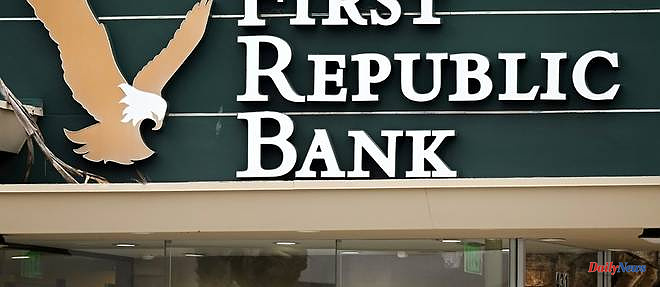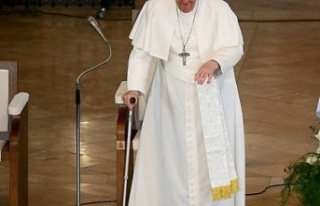US regional bank First Republic plunged again on Wall Street on Friday after a brief respite, as rumors of a bailout strategy or plan multiplied but have yet to materialize.
Latest: according to the Wall Street Journal, the American agency in charge of guaranteeing bank deposits, the FDIC, could take control of the bank this weekend and then resell its assets to another establishment.
JPMorgan Chase and PNC Financial Services are among the companies interested, adds the business daily, citing sources familiar with the matter.
The action of First Republic in any case ended down 43% on the New York Stock Exchange on Friday, at 3.51 dollars, after having been suspended several times during the session for excessive volatility.
This values it at 654 million dollars, while it was worth more than 20 billion at the start of the year and more than 40 billion at its peak in November 2021.
Founded in 1985, headquartered in San Francisco with branches primarily located in California and in urban areas on the east coast, and serving a wealthy clientele, First Republic was by the end of 2022 the 14th largest bank in the country by asset size.
But its fate has been pending since the close failures of three American banks with similar profiles in early March, that is to say concentrated on a particular clientele and/or geographical area.
The authorities and other financial institutions soon came to its rescue to prevent it from experiencing the same fate as Silicon Valley Bank and Signature Bank, namely bankruptcy after sudden massive withdrawals from their customers.
First Republic confirmed late Monday that many of its customers also withdrew deposits, totaling more than $100 billion in the first quarter.
She was able to count on the 30 billion brought by the other banks in her accounts but this is insufficient in the eyes of investors, who plunged the action on Tuesday and Wednesday before giving her a break on Thursday.
The management presented some measures on Monday evening to strengthen the financial health of the bank. She also stressed that she was studying "strategic options" but without giving many details.
Intervention of the authorities? Selling the bank as a whole or just some assets? Business as usual on an upcoming interest rate cut? Rumors abound since about possible solutions but without any official announcement.
For Alexander Yokum, of the CFRA firm, the scenario of a takeover of the establishment by the authorities before the resale of the assets at a reduced price is one of the most likely.
The authorities, however, may be reluctant to save a third bank in a short time.
The problem is also that with SVB and Signature Bank, the FDIC prompted the idea that all deposits were protected, including those beyond the legal limit of $250,000, when they legally have none. authority, noted Sheila Blair, former boss of this agency.
But if the FDIC doesn't, "it could surprise people and be disruptive," she added when asked on CNBC about the risk of contagion to the rest of the banking industry.
The hypothesis of a repurchase of certain assets by other banks without intervention of the authorities is possible but also faces significant obstacles, insofar as a majority of the loans granted by First Republic are real estate loans at fixed rates, which have therefore lost value with the recent rise in interest rates, explains Alexander Yokum.
The scenario of a simple takeover by another bank is, for a similar reason, unlikely in his view: the new owner should immediately integrate into his accounts the fact that the assets of First Republic linked to fixed rates such as mortgages or treasury bills have lost value.
04/29/2023 04:38:42 - New York (AFP) - © 2023 AFP












